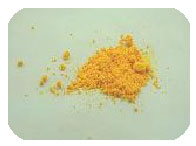Riboflavin, also known as vitamin B2, is a water-soluble B-complex vitamin. Riboflavin is necessary for the human body to function properly and is used to metabolize carbohydrates, fats, and proteins into energy. It is also required for the metabolism of other key vitamins including vitamin B6, niacin, and folic acid. Specifically, riboflavin is needed to form red blood cells, produce antibodies, respirate cells, and facilitate growth.
Sources of Riboflavin
Most foods derived from plants and animals contain at least small quantities of this vitamin. Additionally, since 1943, wheat flour and bread produced in the U.S. have been enriched with this vitamin. Especially good sources of this vitamin include milk, eggs, enriched cereals and grains, ice cream, liver, some lean meats, and green vegetables.
Recommended Daily Allowance
Suggested amounts of this vitamin needed daily vary according to age, ranging from .3 mg – 1.6 mg. Other factors such as pregnancy increase the need for riboflavin. For most people, the recommended daily allowance is easily met through a normal, healthy diet.
Toxicity
There are no known adverse effects of high this vitamin intake in humans. Riboflavin intake of many times the recommended daily allowance is without any form of toxicity. When the Food and Nutrition Board revised the recommended daily allowance in 1998, no tolerable upper level of intake was established. Because riboflavin is water-soluble, excess amounts are excreted by the body through the urine.


Clinical Uses
In addition to the use of riboflavin as part of the Mirasol Pathogen Reduction Technology system, this vitamin has been used in other clinical and therapeutic situations. For over 30 years, riboflavin supplements have been used as part of the phototherapy treatment of neonatal jaundice. The light used to irradiate the infants breaks down not only the toxin causing the jaundice, but the naturally occurring this vitamin within the infant’s blood as well.
More recently there has been growing evidence that supplemental this vitamin may be a useful additive along with beta-blockers in the treatment of migraine headaches.




